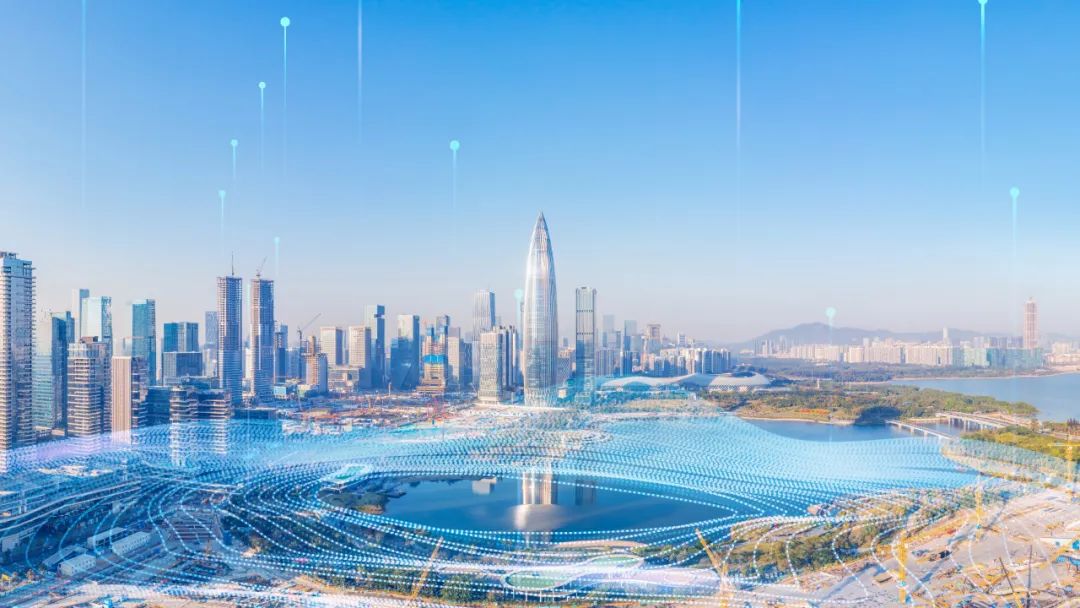
Date: August 21, 2023
Author: Dr. LI Enhan and Ms. ZHUO Shengling, China Token Digital Economic Research Center, CDI
When discussing the rapid advancement of artificial intelligence, it undoubtedly marks the dawn of a new era in technology. It is set to become a key force driving a new wave of technological revolution and industrial transformation. Shenzhen has released a corresponding action plan and the initial roster of "City + AI" application scenarios, while also establishing a substantial 100 billion CNY fund dedicated to artificial intelligence.
Overview of the global competition in artificial intelligence
On a global scale, the competition in artificial intelligence has become a pivotal area where countries vie for dominance. Leading technological powers like the United States, the European Union, and China continue to intensify their investments and strategic positioning in the AI domain.
The United States stands out for its strategic leadership, substantial capital support, and technological edge. Consistently investing in policies and research in AI, it aims to retain its global leadership. In recent years, the U.S. has introduced a series of significant policy documents, emphasizing funding particularly in technological applications in national defense.
The European Union prioritizes safeguarding fundamental rights and leads the way in establishing regulatory frameworks for artificial intelligence. Its focus lies in preventing technological development from potential erosion of human rights, exploring the establishment of a regulatory system, and ensuring the safety of artificial intelligence technology and applications within the EU. Additionally, Europe holds significant advantages in applying AI technology to manufacturing and industrial automation.
With abundant data resources, robust technological foundations, and strong policy support, China's AI industry thrives, unveiling innovative application scenarios continuously. China has also shifted its policy focus from industrial development towards technological regulation and governance, emphasizing the balance between technological oversight and industrial growth. Moreover, it actively publishes ethical guidelines and policy documents to ensure that the advancement of artificial intelligence does not compromise national security or societal order.
The development of the artificial intelligence industry in China’s major cities
Major cities in China are actively exploring various initiatives to become leaders in global AI development, each following its unique development path.
Beijing, leveraging its vast talent pool, outstanding technical prowess, and innovative atmosphere, has issued multiple policies to encourage the development of the AI industry, striving to build itself as an innovation hub for AI.
Shanghai, with a primary advantage in application-driven innovation, extensively applies AI technology across economic, societal, and governance domains within its digital transformation efforts, and strives to create an artificial intelligence “Shanghai hub”.
Shenzhen aims to become a significant player in the global AI arena. The city government has introduced numerous policies and plans while establishing a 100 billion CNY AI fund to foster a comprehensive development environment. Supported by the electronics and information industry, Shenzhen focuses on breakthroughs in core technologies, accelerating the introduction and development of key industries, and attracting numerous enterprises to enter various levels of the artificial intelligence industrial chain.
Next steps for Shenzhen
Shenzhen's future in AI development will center around three core directions. Firstly, there's a push for a deeper integration of artificial intelligence technology with the real economy, especially the industrial manufacturing. This involves adhering to the objective laws of technological development and steering clear of excessive exaggeration or speculative practices. The focus should be on strengthening collaborative innovation between foundational research and industrial applications. Additionally, there's a drive to integrate AI technology with infrastructure construction. It's vital to leverage industrial funds as well, ensuring continuous updates and iterations to expedite technological maturity.
Secondly, effectively leveraging both market initiative and government guidance is critical. Shenzhen's market-oriented environment, exceptional business atmosphere, and favorable policies are vital to spark innovation among market entities in artificial intelligence. At the market level, it is imperative to give full play of the advantages brought by major enterprises and platforms in terms of technology, data, and integrated ecosystems. Regarding the government’s role, there should be continual increments in investments in new infrastructure, orderly progression in open sharing of public data, and exploration of cross-border data circulation between Shenzhen and Hong Kong.
Ultimately, the crux of advancing artificial intelligence lies in finding a balance between innovation and security. This entails ensuring the safety and sustainability of AI innovation through three primary aspects: rigorous compliance with pertinent legal regulations, emphasis on integrated development, and exploration of ethical standards alongside policy frameworks.








